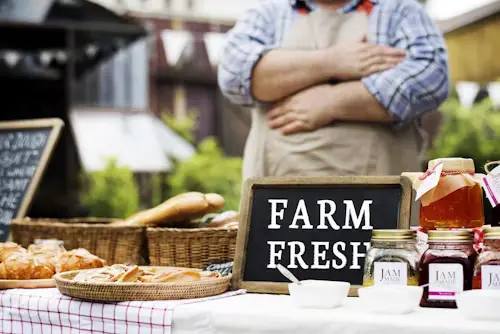In small towns across the country, where fields stretch for miles and neighbors know each other by name, there’s one type of business that holds rural life together: the farm and home store. These stores are more than just a place to shop—they’re the heart of rural America, providing everything from tools and hardware to feed, clothing, and even advice from staff who understand the unique challenges of country living.
For many families in rural communities, a trip to the farm and home store is as essential as the weekly grocery run. Unlike big box retailers or online shops that may not understand the specific needs of farmers, ranchers, or homesteaders, these stores specialize in stocking products that directly support the rural way of life. Whether it’s fencing supplies for cattle, seed for planting season, or heavy-duty boots for long days in the field, farm and home stores keep shelves filled with practical, durable goods.
Meeting Everyday Needs in Rural Life
Life in rural America demands a wide variety of resources. A farmer might need tractor parts one day, animal feed the next, and work gloves by the weekend. Instead of making multiple trips to different specialty shops, the local farm and home store becomes a one-stop destination. By offering a diverse inventory, these stores save time and money while helping families and businesses run smoothly.
Beyond the obvious farming and ranching supplies, these stores often carry household essentials, pet products, and gardening tools. That means a customer can pick up chicken feed, a new lawnmower blade, and a bag of dog food all in one stop. This convenience is especially important in rural areas where the nearest major retailer could be an hour’s drive away.
Dive into details that matter most in this related post today.
Supporting Local Communities
Farm and home stores also serve as anchors for rural economies. Many are locally owned and operated, which means money spent there stays within the community. Employees often live nearby and understand the seasonal rhythms that shape life in rural areas. They know planting season means customers will need fertilizer and seed, while winter brings demand for heaters, insulated clothing, and snow shovels.
Because of this local connection, these stores often provide more personalized service than chain retailers. A customer might walk in with a question about repairing a piece of equipment or selecting the right fencing for a property, and the staff will not only sell the product but share practical know-how from their own experiences. That kind of service creates loyalty and trust that big-box stores rarely match.
Adapting to Modern Challenges
Even in the age of e-commerce, farm and home stores remain vital. While online shopping offers convenience, shipping large or heavy items like feed, fencing, or tractors can be impractical. Rural customers also prefer to see and touch certain products before buying, especially when it comes to equipment or tools that need to stand up to tough conditions.
At the same time, many farm and home stores are adapting by offering online catalogs, delivery, or curbside pickup. These changes help them compete while still maintaining the personal connection that keeps customers coming back. The combination of traditional service and modern convenience ensures they remain relevant in a changing marketplace.
A Cultural Hub, Not Just a Store
What sets farm and home stores apart most is their role as gathering places. They’re not just shops—they’re community hubs where neighbors run into each other, share advice, and catch up on local news. A trip to the store can be as much about connection as it is about stocking up on supplies.
In many ways, these stores symbolize the resilience and self-reliance of rural America. They represent the hardworking spirit of communities that rely on each other and the land. As long as farmers, ranchers, and rural families need tools, feed, and everyday essentials, farm and home stores will remain a cornerstone of life outside the city.
Conclusion
The stores that keep rural America running are more than businesses—they’re lifelines. A farm and home store provides resources, expertise, and community, ensuring that rural families can meet the unique demands of their lifestyle. In a world that often overlooks small towns, these stores continue to prove that they’re not only necessary but irreplaceable.
Let your mind wander—explore more insights on 2A Magazine today.







